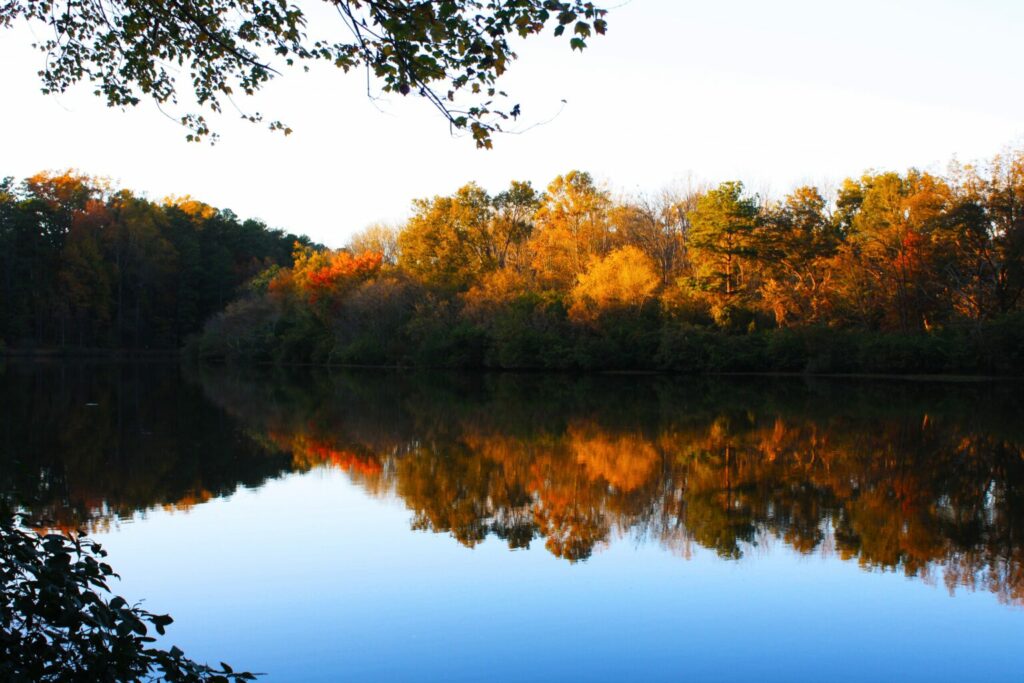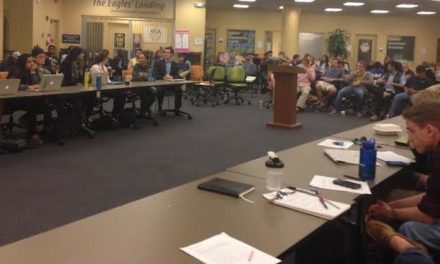DeKalb County indefinitely suspended the project to construct a 10-foot wide cement path along the South Fork Peachtree Creek due to a lack of funding, according to Oxford College Assistant Teaching Professor of Biology Michael Martin. The path, which sparked controversy among students and faculty last year, was proposed to run through Lullwater Preserve in a joint venture among the PATH Foundation, DeKalb County and Emory University’s Office of Master Planning.
Martin, who chairs the University Senate’s Committee on the Environment (COE), said the committee is happy with the decision because they believe the path would do more harm than good.
“We’re excited that at this point the path won’t be moving forward,” Martin said. “There is the possibility that when funding becomes available, the plan could move forward.”
Assistant Vice President of University Communications Laura Diamond wrote in an email to The Emory Wheel that the University “respects the county’s decision.”
Emory Ecological Society Director of Communications and Founder Nick Chang (24C) has previously expressed concerns about the negative environmental impacts of the proposed path. He mentioned that the path could potentially harm endangered starvine, which Lullwater has the largest population of in the world. The path could also adversely affect the water quality in South Fork Peachtree Creek and the Chattahoochee crayfish population.
Associate Teaching Professor of Environmental Sciences John Wegner raised similar environmental concerns. Wegner, who joined Emory in 1998 partly because he could teach in Lullwater, said he has strongly opposed any construction through the preserve for several years.
“I was under the impression that pedagogy, teaching was part of the mission of the University,” Weger said. “It was like my laboratory was going to be destroyed, or at least severely impacted.”
Although Martin stated that DeKalb County suspended the project for economic reasons, former Office of Sustainability Initiatives Intern Bella Roeske (24C) said that she had hoped ecological concerns would have halted construction. Martin expressed a similar sentiment.
“COE is still concerned that the environmental impacts aren’t weighing heavily on the decision-making process,” Martin said. “If the path comes up again and moves forward, we’ll still have to make that case that the environmental impact is really too much.”

Lullwater preserve is a 154 acre preserve that resides in the heart of Emory’s campus. Courtesy of Wikimedia Commons
The path was intended to allow DeKalb County easy access to sewers in Lullwater, which have overflowed into county creeks and require repairs. However, both Martin and Wegner questioned if the path would truly help the county maintain the sewers. Wegner said that there is no apparent benefit to having the path near the sewers, as DeKalb County should already have access to the sewers under a past agreement with the University.
“If there’s a sewer that you need to get to that’s under the ground and now there’s a 10-foot path in that same area that’s made of concrete — it was still uncertain to us that that was a reasonable justification for the path, that it would really make access to potential sewer spills easier for DeKalb County,” Martin said.
Although Chang opposes the path, he did express concern about the state of the sewers.
“That is the one thing that I agree with pretty much everyone on,” Chang said. “DeKalb County’s under a federal consent decree to fix the sewer lines because they’ve been overflowing for years.”
The project also aimed to provide an alternative commuter route to Emory. However, a 2023 survey conducted by Emory Bike Social found that 59.5% of respondents who bike to Emory would not use the proposed path in their commute. Wegner said the path would then essentially be a recreational trail — a concept that Acting Professor of Hematology and Oncology Carlton Dampier takes issue with. Dampier is a member of Save Our Creek, which is a group of Victoria Estates citizens dedicated to stopping the project because the path would run along their neighborhood, which sits just north of Emory’s campus.
“There doesn’t seem to be any benefit to anybody and it doesn’t provide a recreational benefit to the people in the area,” Dampier said. “There’s no public entrance to this proposed path for any of the Victoria Estates neighbors except for the two or three of us whose property are next to the path.”
Martin suggested that DeKalb County should involve the Emory community in conversations surrounding the path if the project is revived in the future.
“We still remain quite concerned and really believe that Emory faculty and students really have an important voice in this and really want to make sure that they’re aware of what’s going on,” Dampier said.







